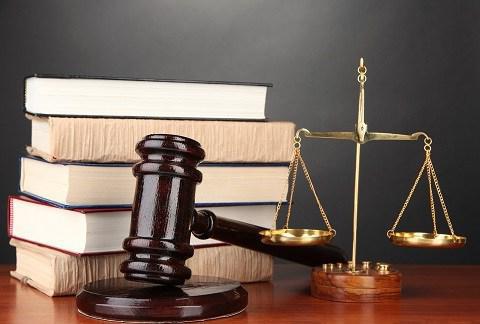In almost all countries of the world, the recognition of a citizen guilty of a crime entails certain consequences. As a rule, they are negative. They retain their effect even after the period of validity of the imposed preventive measure has ended. Criminal record allows you to recognize a person as a recidivist in the event he commits a new act. Accordingly, a more stringent measure will be assigned to him. Let us further consider in detail what a criminal record is, what are its legal consequences.

Definition Features
In the laws of the CIS countries, Latvia, Hungary, Lithuania, Vietnam, Mongolia, Spain, Romania, Poland, an independent legal institution is highlighted - "criminal record. "of the Criminal Code does not contain a clear definition of this concept. In domestic literature, there are several approaches to the disclosure of the term.
Some authors consider a criminal record a special legal status of a citizen, created by the fact that he was charged with a certain punishment for a crime. Other experts have a close stance. For example, Naumova believes that a criminal record is a special consequence of a guilty verdict with the application of a sanction. Among scientists, there are those who use the concept of "legal status." In their opinion, it is created by the fact that a citizen is condemned to some degree of responsibility for the crime.
Golina has a similar position. She notes that a criminal record is the legal status of the subject arising from the conviction of a specific punishment for a committed act. Golina also emphasizes that she is a means of achieving the goal of imputing liability. Under the conditions provided for by law, certain general legal and criminal legal consequences of a criminal record. Meanwhile, Golina in his reasoning gives another definition. In particular, she considers a criminal record as a discrediting fact that a citizen had previously served a sentence, giving grounds for recognizing a relapse.
Analysis of legislation
Considering the above positions, the conclusions of other authors, as well as regulatory provisions, several comments can be made. First of all, the legislator in a certain way isolates concepts, highlighting criminal record. Criminal Code clearly differentiates the fact of imposing sanctions and the result of this procedural action. The corresponding conclusion can be made by analyzing the 86th article of the Code. It seems that it is hardly correct to contrast such concepts as “fact” and “legal status” when determining a criminal record.
The fact is that the latter acts as a variation of the former. The specificity of this fact is that it is considered as a continuing circumstance, serving as the basis for the emergence of specific legal results. A criminal record is a fact that must be taken into account when deciding a number of criminal law issues. Subject to certain conditions, it may be canceled. A citizen is considered convicted only if the sentence imposed in his case has entered into force. A person has the corresponding status a certain time. 
Important point
Criminal consequences of a criminal record come after the entry into force of the sentence, if it establishes a specific preventive measure for a citizen.Some individuals may be found guilty but not liable. In accordance with article 86, subjects are considered not to have a criminal record if they have been convicted without sentencing, and also if they were released from sanction by virtue of an amnesty or due to the expiration of the statute of limitations.
Accordingly, it is necessary to differentiate the concepts used in practice. A criminal record characterizes the legal side of the conviction. She acts as legal confirmation of it. After the annulment of the fact, the person cannot be considered as convicted. Accordingly, legal circumstances arising in connection with the imposition of a preventive measure are also eliminated. This conclusion is also confirmed by part 2 of the 86th article of the Code. The norm states that all criminal legal consequences of a criminal record are eliminated upon its annulment.
Limitations
A criminal record is a certain kind of burden. It is caused by the fact of bringing the subject to responsibility. In this case, criminal consequences of a criminal record. In the current legislation there is no list of restrictions related to the imposition of a preventive measure. At the same time, there are norms establishing general legal prohibitions for convicted persons. For example, they cannot be taken to certain positions, including being an investigator, judge, prosecutor, member of the bar, cannot purchase weapons, etc.
As part one of the 86th article of the Code points out, criminal record is taken into account in case of relapse and imposition of punishment. Accordingly, the unfavorable results of the previously imposed preventive measure relate solely to the commission of a new act. Repeat conviction it involves stricter sanctions and more stringent restrictions. If the fact of imputation of the preventive measure has not been canceled, then he:
- It is considered an obstacle to the release of the subject from liability on the grounds enshrined in Articles 90, 76 and 75 of the Code.
- It is taken into account as an aggravating circumstance.
- It is taken into account when a citizen recognizes a relapse (including dangerous and especially dangerous).
- It is an obstacle to the satisfaction of an application for parole from serving a sentence.
Cancellation
How to pay a criminal record? The legislation provides for two options for canceling the fact of imposing a preventive measure on a subject. Redemption of a criminal record is called the automatic termination of a preventive measure. This can happen by court order or after a period established by law. Various types of criminal record canceled in different ways. This is due to the severity of the crime, the nature of the preventive measure. Equally important is the behavior of a citizen who was charged with sanctions.

How long is the criminal record removed?
Types of criminal record and the periods after which it is removed:
- For probationers - at the end of the probationary period.
- For citizens who are charged with lenient measures compared to deprivation of liberty, a year after their execution.
- For subjects who were sentenced to imprisonment for minor or moderate crimes, 3 years after leaving the prison.
- For citizens who are charged with imprisonment for serious acts - 6 years after the end of the sentence.
- For persons convicted of crimes of special gravity - after 8 years.
Legislation thus establishes differentiated periods for annulment of the fact of holding liable. Their duration in some cases is dependent on the category of act, in others on the type of sanction.
Sanctions Replacement
How to pay a criminal record in the event of a change in the preventive measure? In fact, the subject is charged with two types of sanctions. Consider an example. The citizen was assigned correctional labor.Subsequently, the sanction was replaced with imprisonment due to the malicious evasion of the subject from the execution of punishment. The cancellation period, however, will be calculated taking into account the imputed correctional labor. If the replacement was with a milder sanction, the calculation is carried out by adding up the time served by the sentence, and then by definition of changing the preventive measure.
Start of calculation
According to the law, the countdown of the criminal record is calculated from the moment the citizen is released from the main and additional measures (if the latter took place). In the analysis of this rule, the provision enshrined in Article 47 of the Code (Part 4) is of interest. In the case of a deprivation of the right to occupy certain positions or engage in certain activities as an additional form of punishment for restraint of liberty, arrest, detention in a disciplinary military unit, deprivation of liberty, it extends to the entire time that these basic types of punishment are served, but its term is calculated from the moment of their departure.
Ability to interrupt the period
It was provided for in the Criminal Code in 1960. There is no such possibility in the modern Code. If the subject commits a new crime in the period established to annul the fact of bringing him to justice, the legislation provides for special criminal consequences of a criminal record. The cancellation periods for the first and subsequent acts are calculated in this case separately. There may also be situations where the criminal record for the first crime will be extinguished during the implementation of the preventive measure for the second. There may be another option. The term for canceling a criminal record for a new act will end earlier than the corresponding period established for the first crime.

Special rules
Quite often there is parole from serving a sentence. In such situations, special rules for calculating periods apply. The period during which the person actually served the sentence is taken into account. It is worth noting that these periods are considered as test periods. deadlines. Parole allowed in the case when the subject, with his impeccable behavior, proves that he has corrected himself and no longer poses a threat to society. To annul the fact of holding a citizen accountable, a petition must be submitted. The concept does not disclose the concept of "impeccable behavior." It seems that it should be understood as a law-abiding lifestyle. According to some authors, it is not advisable to remove a criminal record immediately after release. Lawyers believe that this issue should be resolved no earlier than the end of half of the period provided for in Article 86.
Part 1, Art. 74
This provision provides for a special case of annulment of the fact of bringing to responsibility. If, before the end of the trial period, a person proves a correction with his behavior, the court may issue an appropriate decision. In this case, the body exercising control over the execution of sentences should apply. Moreover, the cancellation of the fact of prosecution is carried out no earlier than after half the trial period. Withdrawal of conviction is possible with amnesty, as well as pardon.
findings
Article 86 (part 6) emphasizes that the annulment of the fact of bringing to justice implies the elimination of all legal consequences of a criminal record. In a legal sense, a citizen is considered as if not sanctioned for the crime he committed. However, with a moral and social assessment, including the imputation of a new preventive measure, criminal record information can be taken into account (as, in fact, previous merits). The fact of prosecution, therefore, appears as the result of a sanction imposed by a court verdict.It is considered as a special legal state of a citizen. The presence of a criminal record implies a number of restrictions. Cancellation of the fact is carried out after the period established by law. As an exception, a criminal record can be removed before it ends.

Urgency of the problem
According to statistics, the number of people serving sentences is huge. The state focuses its efforts on reducing the number of persons held accountable. Exemption from punishment acts as one of the key legal instruments in the implementation of this task. However, it is also considered the most important means of protecting the interests of the state. However, it is worth noting that insufficient validity of the implementation of this tool can cause the opposite result. For example, with paroxysm, an increase in the percentage of relapse is noted. The effectiveness of this tool depends on its harmonious combination with other means.
Grounds for release
They are provided for in various norms of the Criminal Code. Among them are articles:
- 73 - conditional conviction.
- 79 - parole.
- 80 - change of the unserved part to a softer measure.
- 80.1 - release due to a change of scenery.
- 81 - annulment of the measure in connection with the disease.
- 82 - postponement of punishment for pregnant women or who are dependent on minors.
- 83 - release due to the expiration of the limitation period of the sentence.
- 84 - amnesty.
- 85 - pardon.
The legislation separately stipulates the situation of persons under 18 years of age. Juvenile conviction - a big problem for the state. The legislation provides for the possibility of exemption of such persons from sanctions with the application of measures of compulsory educational influence. The corresponding provision is enshrined in Article 92 of the Criminal Code.

Other options for release
In the legal literature there are a number of other ways to rid a person of punishment. So, Kozachenko points out that exemption from sanctions can be carried out with the set-off of detention. Rarog believes that the basis is a change in the criminal law. Meanwhile, most lawyers agree that these circumstances cannot serve as reasons for lifting the sanction. The legislator establishes the institution of exemption as a legal fact, not a process. As part 2 of Article 86 indicates, a citizen who has been sanctioned is considered not to be convicted.
Meanwhile, other provisions of the law indicate something else. A criminal record exists under “conditional” sanctions. These include the postponement of the application of preventive measures for pregnant women and women with young dependents, and so on. Accordingly, almost half of the options for exemption from sanctions does not remove a criminal record. Accordingly, the question arises about the correctness of the provision formulated in paragraph 2 of Article 86. According to experts, it would be advisable to consolidate the unconditionalness of the options for exemption from sanctions. To do this, use the appropriate wording. It can sound as follows: a citizen, unconditionally exempted from a preventive measure, is considered to be criminal record.
FSIN
In the Russian Federation, it acts as the body ensuring the implementation of court sentences Federal Penitentiary Service. The FSIN is subordinate to the Ministry of Justice of Russia. The service carries out:
- Control and supervision in the field of execution of sentences.
- The protection and escort of persons in custody, convicted, suspected, accused of crimes.
- Functions for the maintenance of these persons.
- Control over the behavior of citizens sentenced to probation or with delay.
Under the FSIN are all places where there are persons who are charged with imprisonment. The Federal Penitentiary Service exercises its functions through territorial inspectorates.

Conclusion
A criminal record is traditionally regarded in society as a fact that spoils the reputation of a citizen. The information that the subject has ever committed a crime and was prosecuted creates significant inconvenience in everyday life. Currently, the current legislation contains a number of significant restrictions for citizens with a criminal record. In particular, they cannot get a prestigious job, despite having sufficient knowledge and experience, they do not have the right to go abroad. Often, taking into account these restrictions, a person convicted once, believes that he still will not have a normal life, goes to relapse.
In this regard, many citizens, once turning off the right road, never return to it again. Avoiding responsibility for a crime is rare. Law enforcement agencies have the necessary experience for the timely disclosure and suppression of acts. Of course, there are cases of unintentional commission of crimes. However, in such situations, there are certain criminal legal consequences. There is a misconception that after the annulment of the fact of bringing to justice a citizen can start life, as they say, from scratch. Information about his criminal record is available in the information databases of the Ministry of Internal Affairs. It is likely that this information will create obstacles to the implementation of completely legitimate plans. As practice shows, rarely anyone manages to again become a full member of society. But there are people who have made every effort to rectify the situation. Currently, many of them have found their place in life.